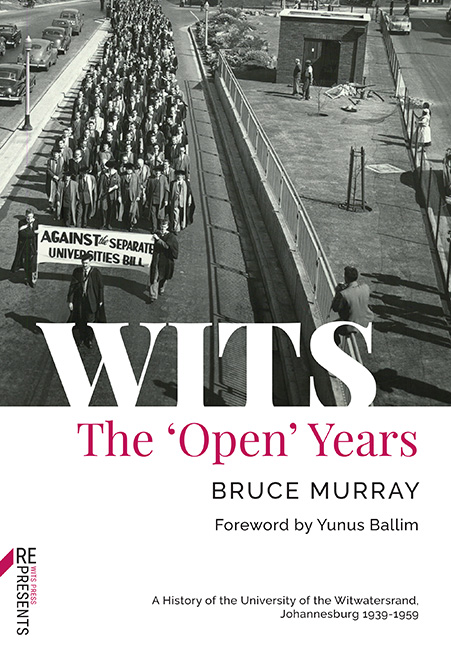4 - World War II the Ex-Volunteers and Student Politics
Published online by Cambridge University Press: 24 November 2023
Summary
World War II, and then the ex-volunteer era, produced something of a sea change in student political activity and culture at Wits. An organised left, inspired by notions of refashioning South African society, made its appearance on campus, and the Students’ Representative Council became politicised in a way it never had been before. For SRC elections ‘slates’ of candidates were introduced, and an alliance between the left and liberals, increasingly attached to principles of non-racialism, moved into effective control of the SRC. For the student body, in turn, the war, and the divisions it caused in the country and on campus, gave it for the first time a sense of being directly caught up in the politics of the wider society; the handling of student affairs ceased to be simply the preserve of the SRC, becoming a matter of general student involvement. The era of the student mass meeting had dawned. In the protests over the 1943 fee increase, moreover, the Wits administration got its first taste of student rebellion.
In the arena of national student politics, World War II and its immediate aftermath likewise effected some major changes. The history of the Afrikaanse Nasionale Studentebond (ANS), the highly politicised national organisation formed by the Afrikaner SRCs in the 1930s, has yet to be written, but it is evident that the organisation suffered badly during the war because of its identification with the paramilitary, pro-Nazi Ossewabrandwag (OB). In 1948, after the Nationalists came to power, it was succeeded by a reconstituted Afrikaanse Studentebond, founded on a Christian national basis. The outcome of the war was similarly crucial for determining the character of the National Union of South African Students (NUSAS), in effect the national organisation of English-speaking students. During the war NUSAS sought to keep itself intact by avoiding polarising issues, notably the admission to its ranks of Fort Hare Native College, which prepared African students for degrees offered by the University of South Africa. The end result of the war, perceived as a defeat for the forces of Fascism and racialism, ultimately ensured the admission of Fort Hare, and NUSAS finally emerged as a ‘progressive’ organisation.
- Type
- Chapter
- Information
- WITSThe 'Open' Years, pp. 84 - 110Publisher: Wits University PressPrint publication year: 2022



